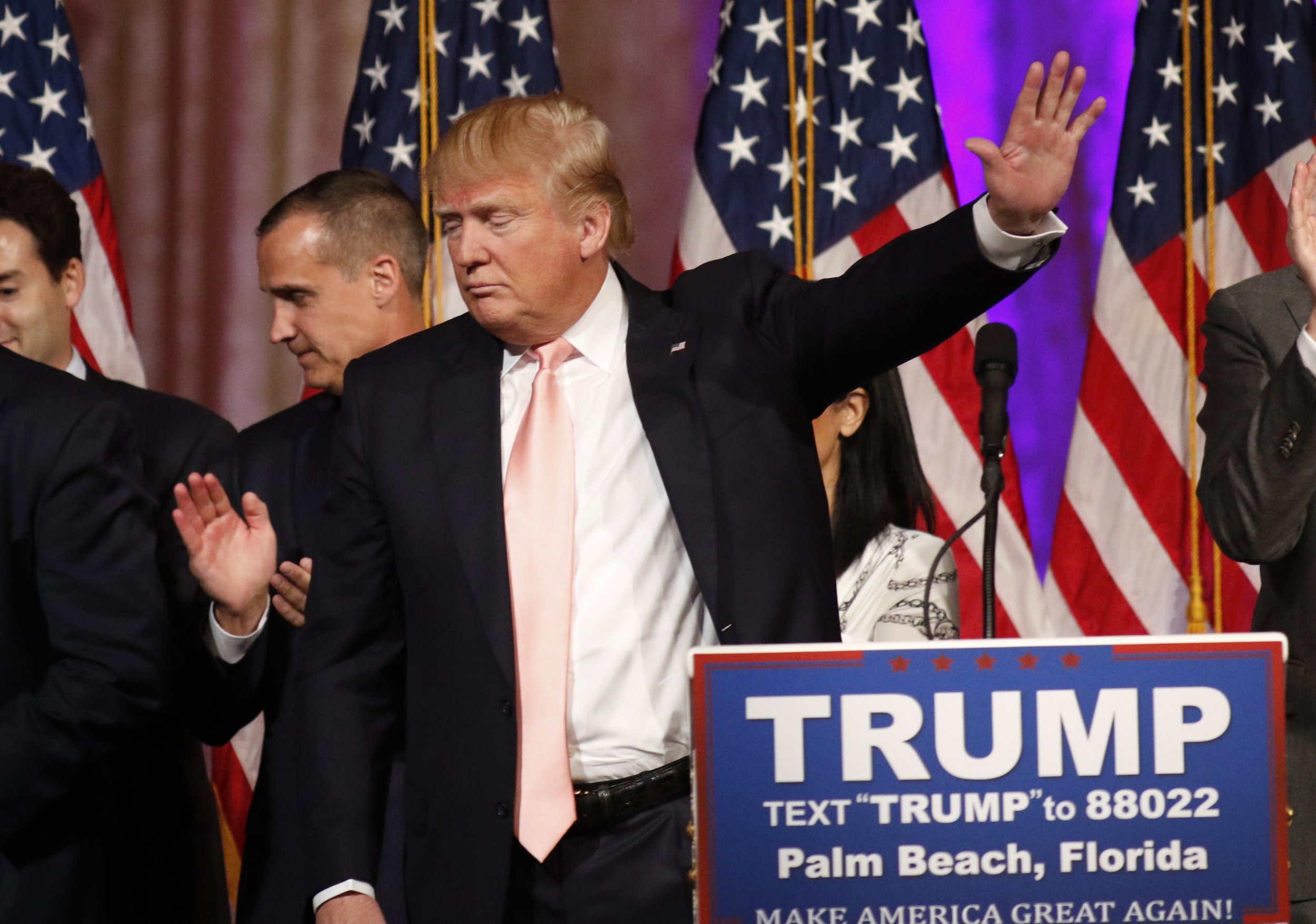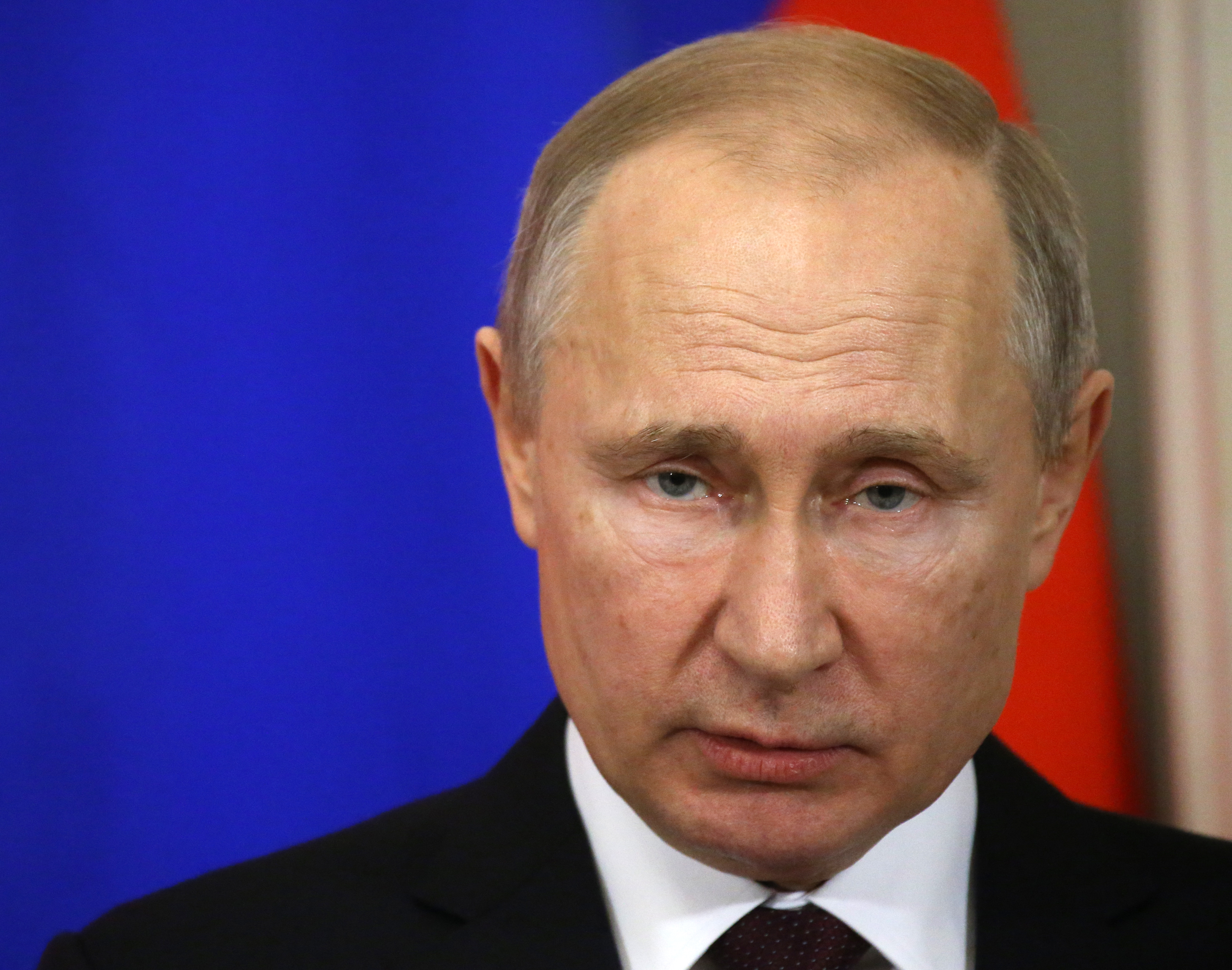
The reactions of both party establishments, Republican and Democrat, to Donald Trump's and Bernie Sanders's unexpected success in the U.S. primaries is basically the same: Their success demonstrates the crisis of our democracy; it is an abnormality that we should somehow control and contain.
This reaction tells us a lot about how our democracy effectively functions: It is tolerated if properly controlled by political establishment, or, as Noam Chomsky noted years ago, "it is only when the threat of popular participation is overcome that democratic forms can be safely contemplated."
Walter Lippmann, the icon of American journalism in the 20th century, played a key role in the self-understanding of the U.S. democracy. Although politically progressive (advocating a fair policy toward the Soviet Union, etc.), he proposed a theory of the public media that has a chilling truth effect. He coined the term Manufacturing Consent, later rendered famous by Chomsky—but Lippmann intended it in a positive way. In Public Opinion (1922), he wrote that a "governing class" must rise to face the challenge—he saw the public as Plato did, as a great beast or a bewildered herd—floundering in the "chaos of local opinions." So the herd of citizens must be governed by "a specialized class whose interests reach beyond the locality"—his elite class is to act as a machinery of knowledge that circumvents the primary defect of democracy, the impossible ideal of the "omni-competent citizen."
This is how our democracies function—with our consent: There is no mystery in what Lippmann was saying, it is an obvious fact; the mystery is that, knowing it, we play the game. We act as if we are free and freely deciding, silently not only accepting but even demanding that an invisible injunction (inscribed into the very form of our free speech) tells us what to do and think. As Marx knew it long ago, the secret is in the form itself. In this sense, in a democracy, every ordinary citizen effectively is a king—but a king in a constitutional democracy, a king who only formally decides, whose function is to sign measures proposed by executive administration. This is why the problem of democratic rituals is homologous to the big problem of constitutional democracy: How to protect the dignity of the king? How to maintain the appearance that the king effectively decides, when we all know this is not true?
This, then, is our sad predicament: those rare moments when our democracy really functions and voters get a real choice are perceived as a crisis of democracy. Critics of our institutional democracy often complain that elections as a rule do not offer a true choice: What we mostly get is the choice between a center-Right and a center-Left party whose program is almost indistinguishable. But Greek voters did face a real choice: the establishment on the one side, Syriza on the other side. And, as is mostly the case, such moments of the real choice throw the establishment into panic: They paint the image of social chaos, poverty and violence if the wrong choice wins. The mere possibility of the Syriza victory has sent ripples of fear through markets all around the world, and, as is usual in such cases, ideological prosopopoeia has its heyday: Markets started to talk again as living person, expressing their "worry" at what will happen if the elections will fail to produce a government with a mandate to continue with the program of fiscal austerity.
An ideal gradually emerged from this European establishment's reaction to the threat of Syriza victory in Greece, the ideal best rendered by the title of Gideon Rachman's comment in Financial Times (19/12/2014): "Eurozone's weakest link is the voters." In this ideal world, Europe gets rid of this "weakest link" and experts gain the power to directly impose necessary economic measures—if elections take place at all, their function is just to confirm the consensus of experts. The disturbing fact is that this distrust of popular opinion is double-edged: It can be directed also against anti-immigrant populism judged inacceptable by the liberal establishment.
That's why the moderate "rational" Republican Right is in a panic. What has to be done here is to address a more basic question: The true problem resides in the weakness of the moderate "rational" position itself. The fact that the majority cannot be convinced by the "rational" capitalist propaganda and is much more prone to endorse a populist anti-elitist stance is not to be discounted as a case of lower-class primitivism: Populists correctly detect the irrationality of this rational approach, their rage directed at faceless institutions that regulate their lives in a non-transparent way is fully justified.
Does this really make Trump a counter-establishment candidate? It is easy to show that the function of Trump's "refreshing" provocations and vulgar outbursts is to mask the ordinariness of his program. His true secret is that if, by a miracle, he wins, nothing will really change—in contrast to Sanders, the Leftist Democrat whose key advantage over the academic Politically Correct liberal Left is that he understands and respects the problems and fears of ordinary workers and farmers. After the recent successes of Hillary Clinton that made Sanders's nomination practically impossible, the choice of the voters in November will be between the two faces of establishment, open vulgarity versus slick opportunistic maneuvring (which does not exclude many overlaps: there is much opportunistic bickering in Trump and no less barely concealed vulgarity in Clinton). One is tempted to paraphrase here Stalin: In the late 1920s, when he was fighting the Rightist and the Leftist "deviation," a journalist asked him which deviation is worse, and Stalin snapped back, "They are both worse!" So who is worse, Donald or Hillary? They are both worse.
Uncommon Knowledge
Newsweek is committed to challenging conventional wisdom and finding connections in the search for common ground.
Newsweek is committed to challenging conventional wisdom and finding connections in the search for common ground.
About the writer
To read how Newsweek uses AI as a newsroom tool, Click here.





